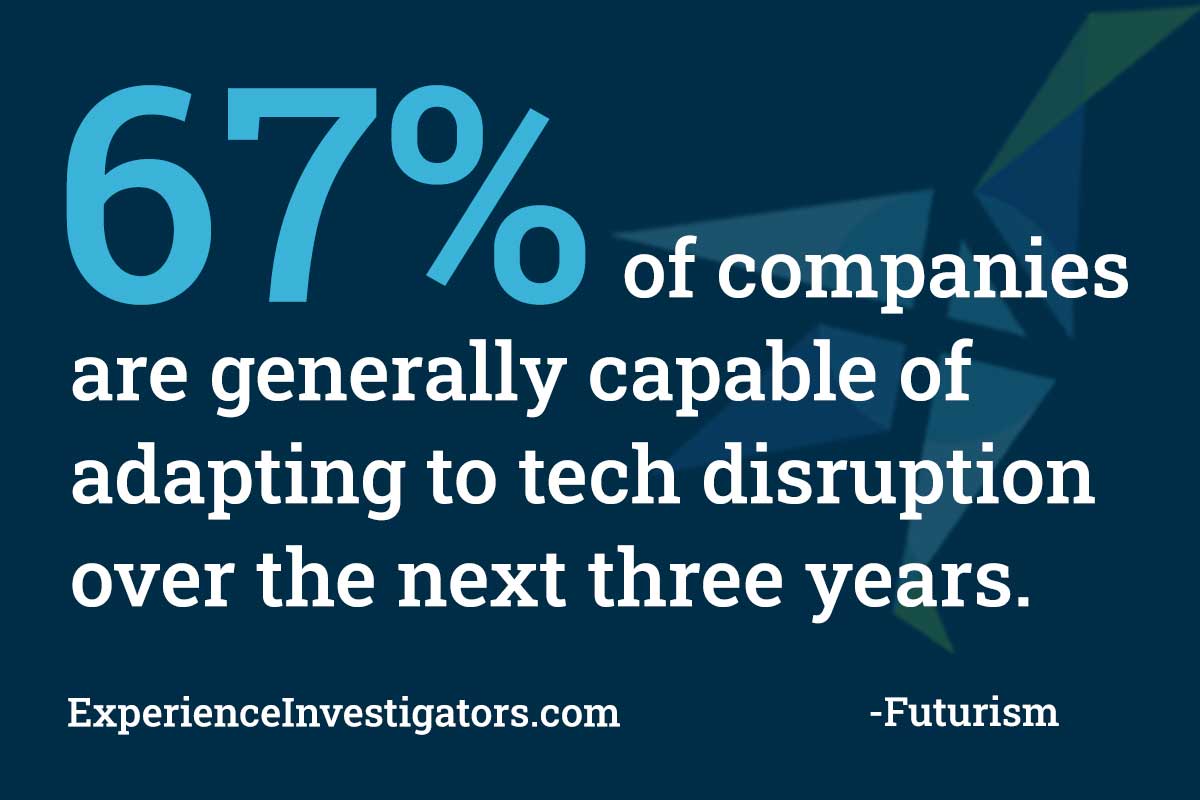Many years ago, I was speaking with a marketing executive when they revealed how they really felt about this whole idea of “customer experience (CX).”
In their view, CX was just another buzzword being tossed around as novel business jargon.
You can imagine how I, somebody who’s been dedicated to customer experience for over 20 years, reacted: I completely understood where they were coming from.
Why?
Because in this marketer’s case, leaders in their organization had suddenly started talking about the importance of customer experience… but it was presented as a sort of theoretical idea. CX wasn’t defined for their business, and their role in it wasn’t made clear.
Customer experience was seen as something like a dream… “make customers happy, it’s as simple as that!”
If CX was being presented to you in such a way, I’d expect you to see it as a buzzword too.
But, of course, customer experience is so much more than that.
Or I should say, good customer experience is more than that.
Because customers are interacting with your brand, your communications, your products, your payment process…whether you care about their experience or not.
Brands that care about customer experience treat it as a strategy, a mindset and a discipline. And they manage it according to their vision, values, mission, and their own definition of success.
Those are big concepts that many business leaders weren’t taught. Traditional business education and even traditional business plans don’t even mention customer experience.
Customer service gets a nod for when things go wrong for the customer, but often CX is discussed in broad terms like “delight the customer” which can be interpreted as both “that sounds nice, now what?” to “not my job since I’m not in customer service.”
Now consider how CX has grown up in the last three decades.
So how, exactly, does CX get reduced to the idea of a buzzword? A fad? A trend? A bit of jargon?
Well, in many organizations it’s still treated that way.
Leaders are seduced by the idea of customer experience. But the effort behind that idea is very real, and it’s frankly more difficult than most people think.
CX isn’t just asking for feedback and then doing something to delight customers. It’s collaborating and creating the right vision, the right teams, the right data, and the right mechanics to deliver.
CX is considered a buzzword…more than we’d like to admit.
Definitions are worth debating, because the lens of the leader and the organization absolutely influence how CX is defined. And now other buzzwords are blending and in some cases taking over how CX is viewed:
And while these tools and terms are important, they can never stand alone to refer to CX as a whole.
When we reduce terms to buzzwords, it’s almost a cue for our teams to ignore them:
I’m not claiming to be Merriam or Webster, but I do think talking about our approach to the words that fill the CX glossary is a conversation worth having. These are not buzzwords when they have meaning behind them.
Just for kicks, here are three buzzwords I think are worth defending.
Here’s why.
To become a truly customer-centric organization, engagement is not only critical, but it’s costly if it’s not there — both for your customers and your employees.

Customer Engagement means connecting with customers emotionally. It means creating a real relationship that improves their loyalty and increases their positive feelings. It means building a customer experience WITH your customers, not just for them.
Employee Engagement means connecting employees’ daily duties with the bigger vision, every day. It means internalizing what promises were made to customers and then living up to those promises.
Not engaging employees is like not putting fuel in your car and wondering why it’s not working. Leaders must engage employees to deliver a great experience.
Culture is so much more than a buzzword! Culture impacts everything you do, from who you hire to what you create.

If your culture is one of chasing monthly sales goals and rewarding only those top performers in the front of the customer’s journey, it’s impossible to walk the talk of “we care about customers.”
If your culture oppresses the truth because employees don’t want to get in trouble for speaking up about issues they see, then your customers will live with increased effort and pain that is never addressed.
A customer-centric culture is where innovation and imagination around the customer experience live.
I know what you’re thinking: “Really?”
Believe me, I’ve had my fill of the term digital transformation, too. But hear me out…
Transformation is a permanent and critical word for any CX leader because doing business today is unlike doing business in the past:

Digital transformation, specifically, is a funny way of saying we have to build the experience on the digital platforms that enable better experiences.
Personalized, meaningful experiences at-scale can only happen with robust and well-considered digital experiences for both the organization and customers. This is not going away, this is simply the way of the world.
Buzzwords can be annoying, yes. But they become leadership buzzwords because a bunch of us realize they’re necessary!
The next time you feel the urge to roll your eyes and dismiss a buzzword, seek out the core principle behind the buzzword. If a word is being thrown around in your organization without meaning, that’s an opportunity to give it meaning by defining the term and then communicating it across the organization.
These buzzwords have power behind them. I challenge you to look beyond the buzz to see what they’re really trying to say.
 Jeannie is an award-winning customer experience expert, international keynote speaker, and sought-after business coach who is trailblazing the movement from “Reactive Customer Service” to “Proactive Customer and Employee Experience.” More than 500,000 people have learned from her CX courses on LinkedIn Learning, and her insights have been featured in Forbes, The Chicago Tribune, The Wall Street Journal and NPR.
Get Jeannie’s insights in your inbox each week by subscribing to The Weekly Win and follow her on LinkedIn, Instagram and YouTube.
Jeannie is an award-winning customer experience expert, international keynote speaker, and sought-after business coach who is trailblazing the movement from “Reactive Customer Service” to “Proactive Customer and Employee Experience.” More than 500,000 people have learned from her CX courses on LinkedIn Learning, and her insights have been featured in Forbes, The Chicago Tribune, The Wall Street Journal and NPR.
Get Jeannie’s insights in your inbox each week by subscribing to The Weekly Win and follow her on LinkedIn, Instagram and YouTube.